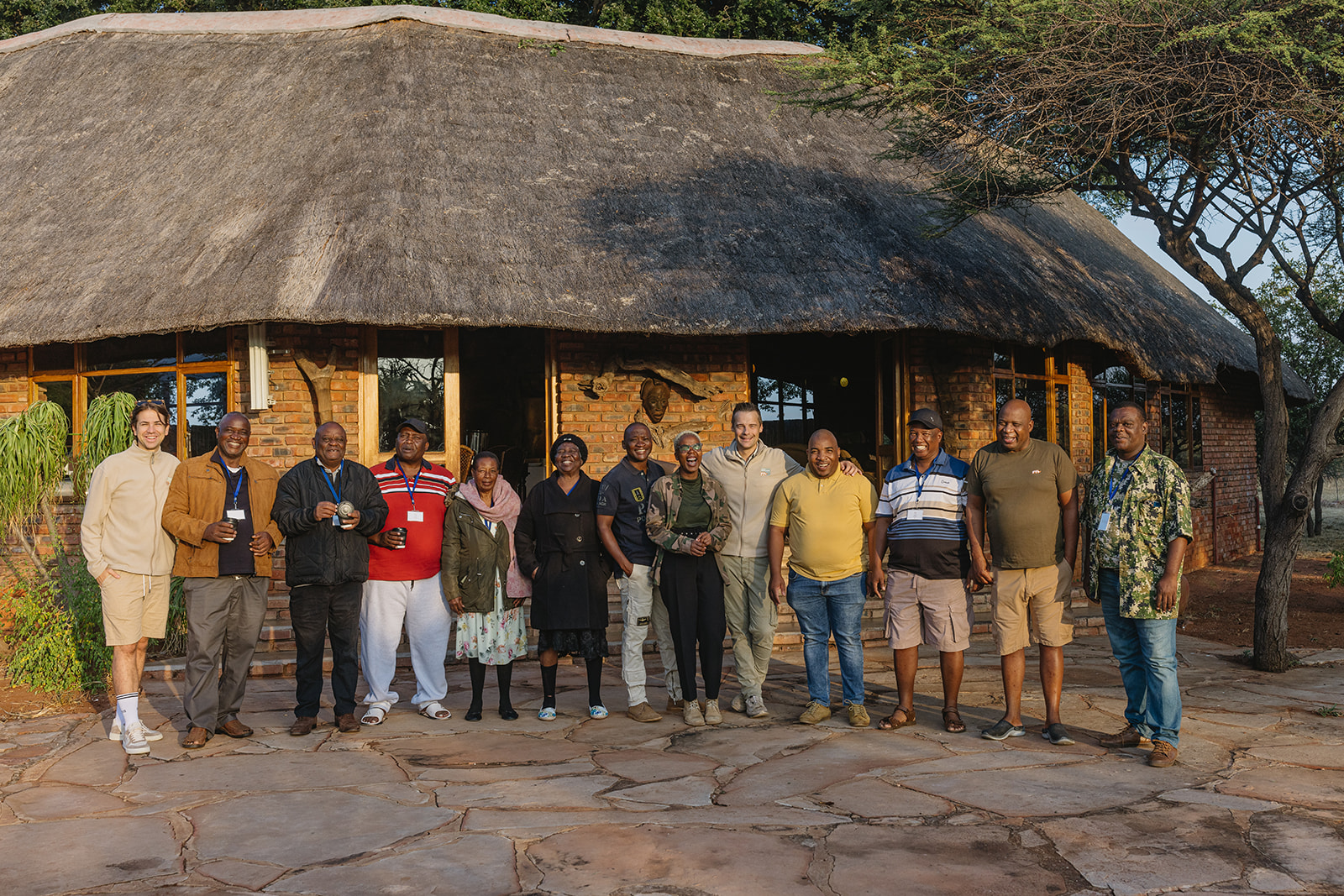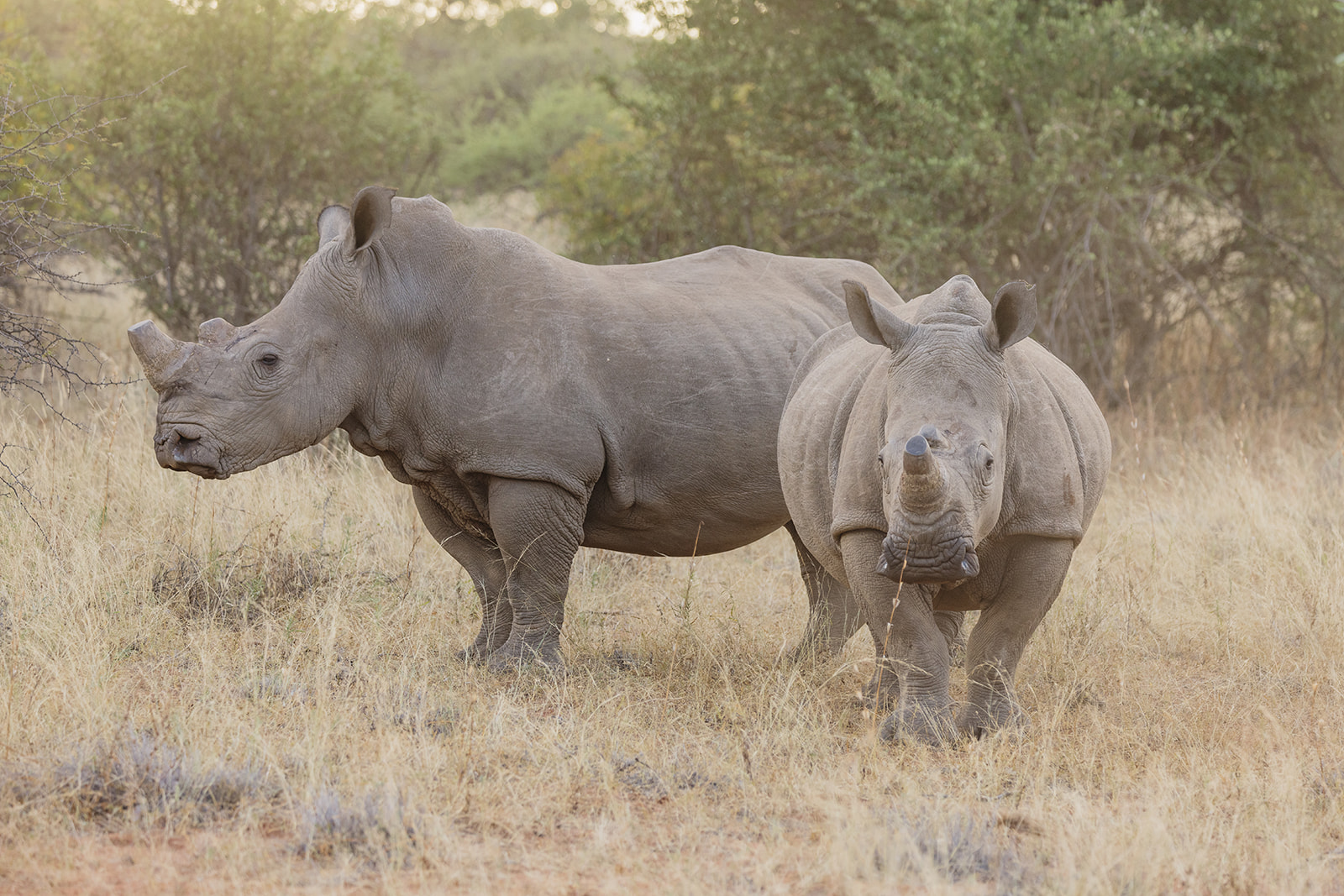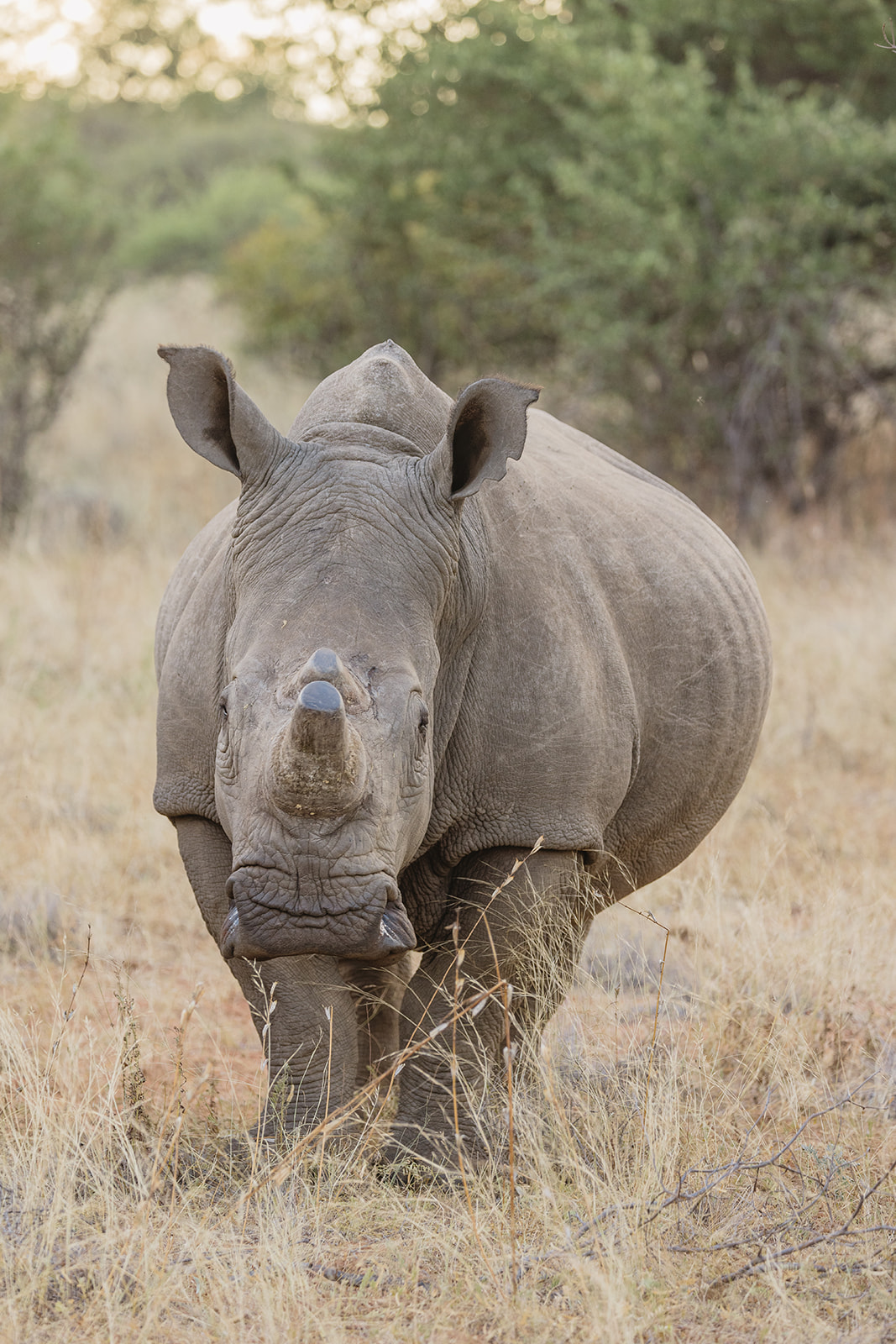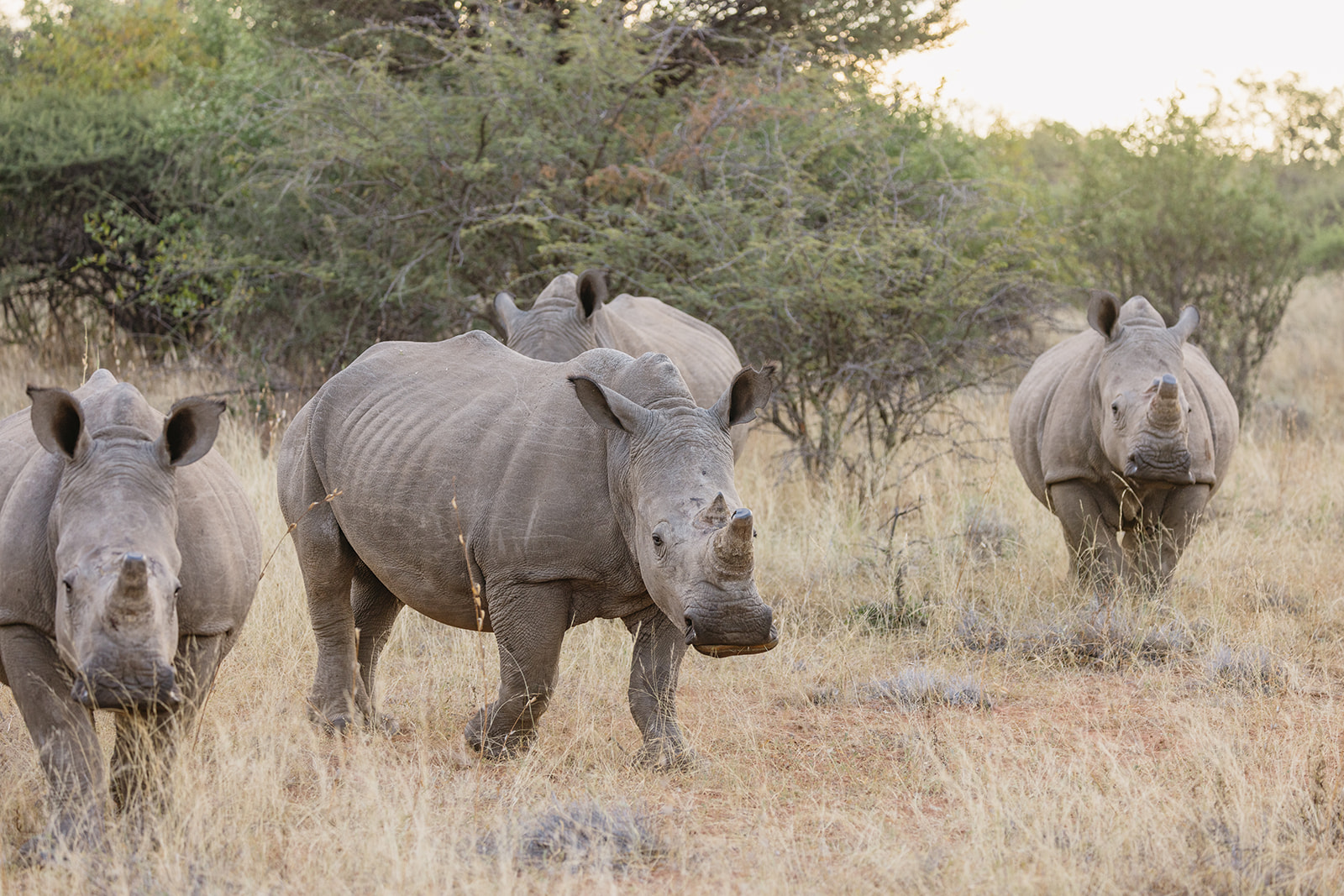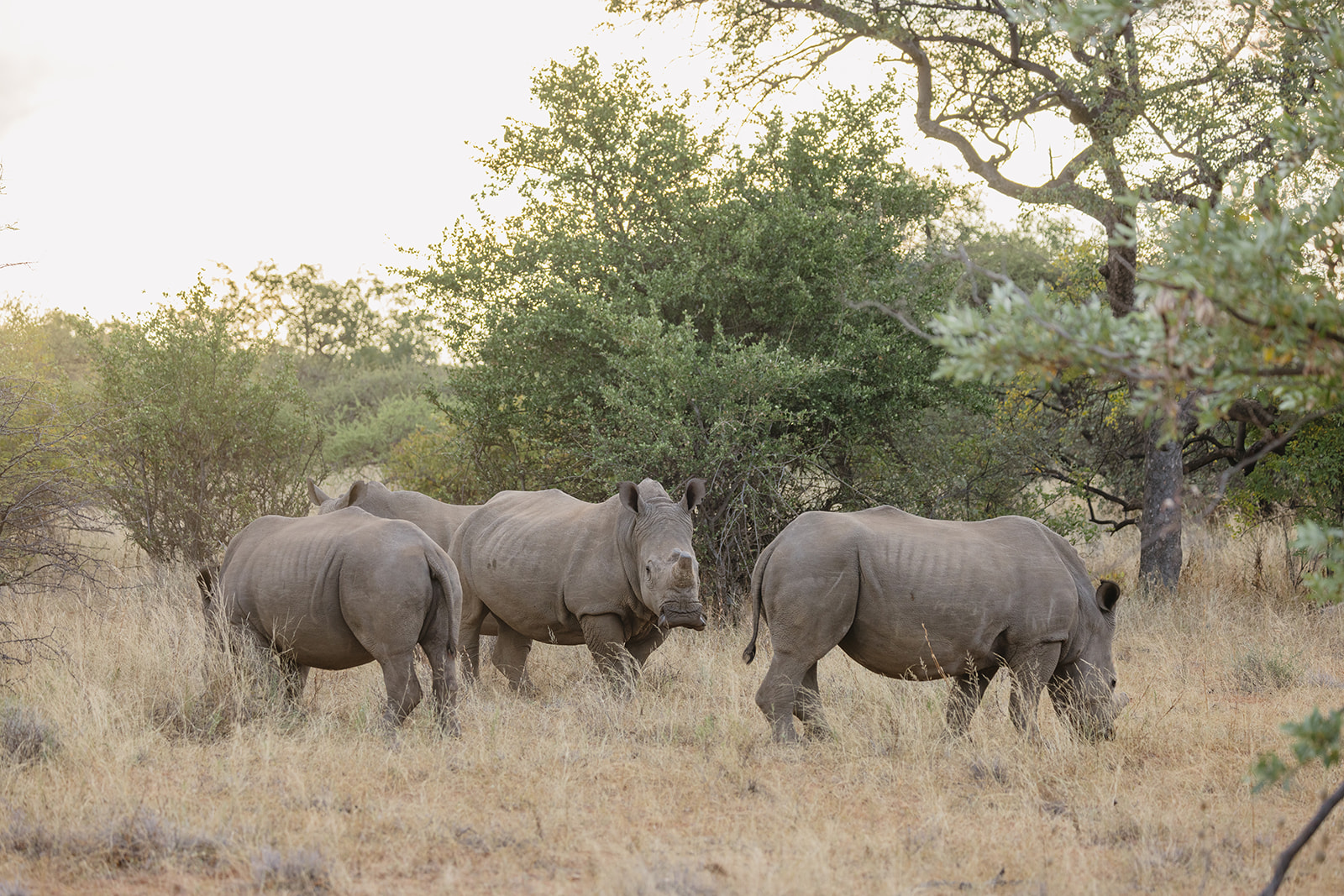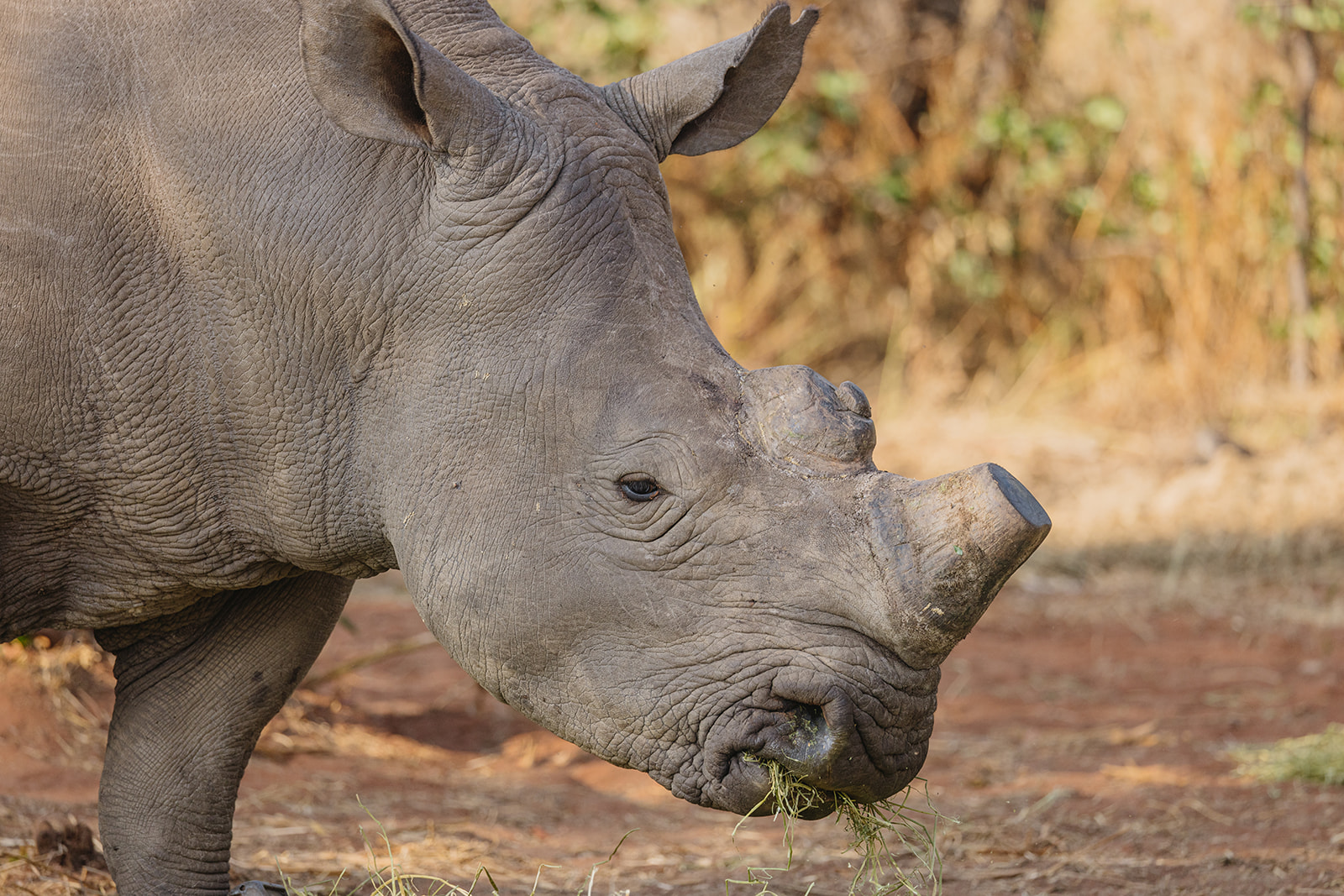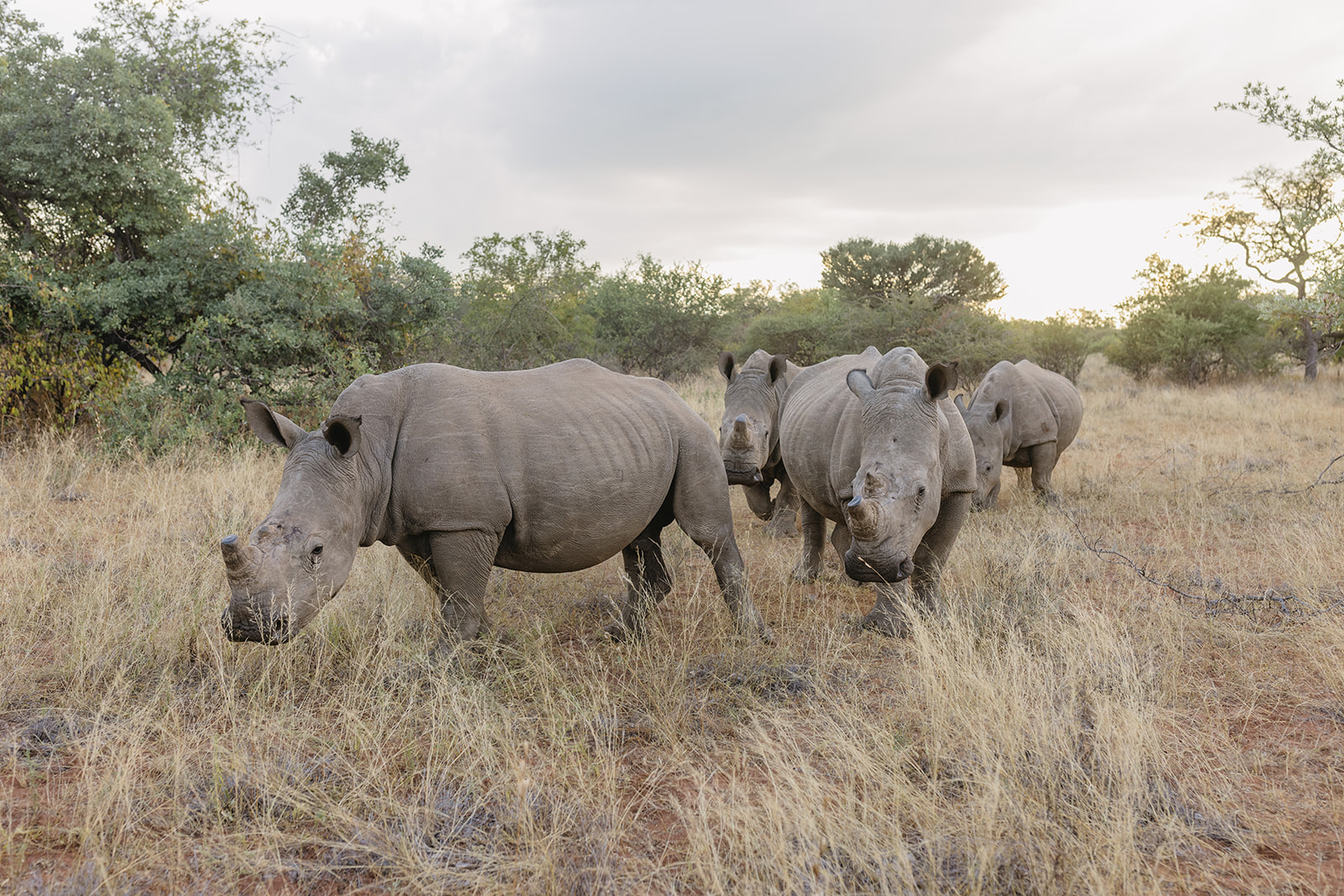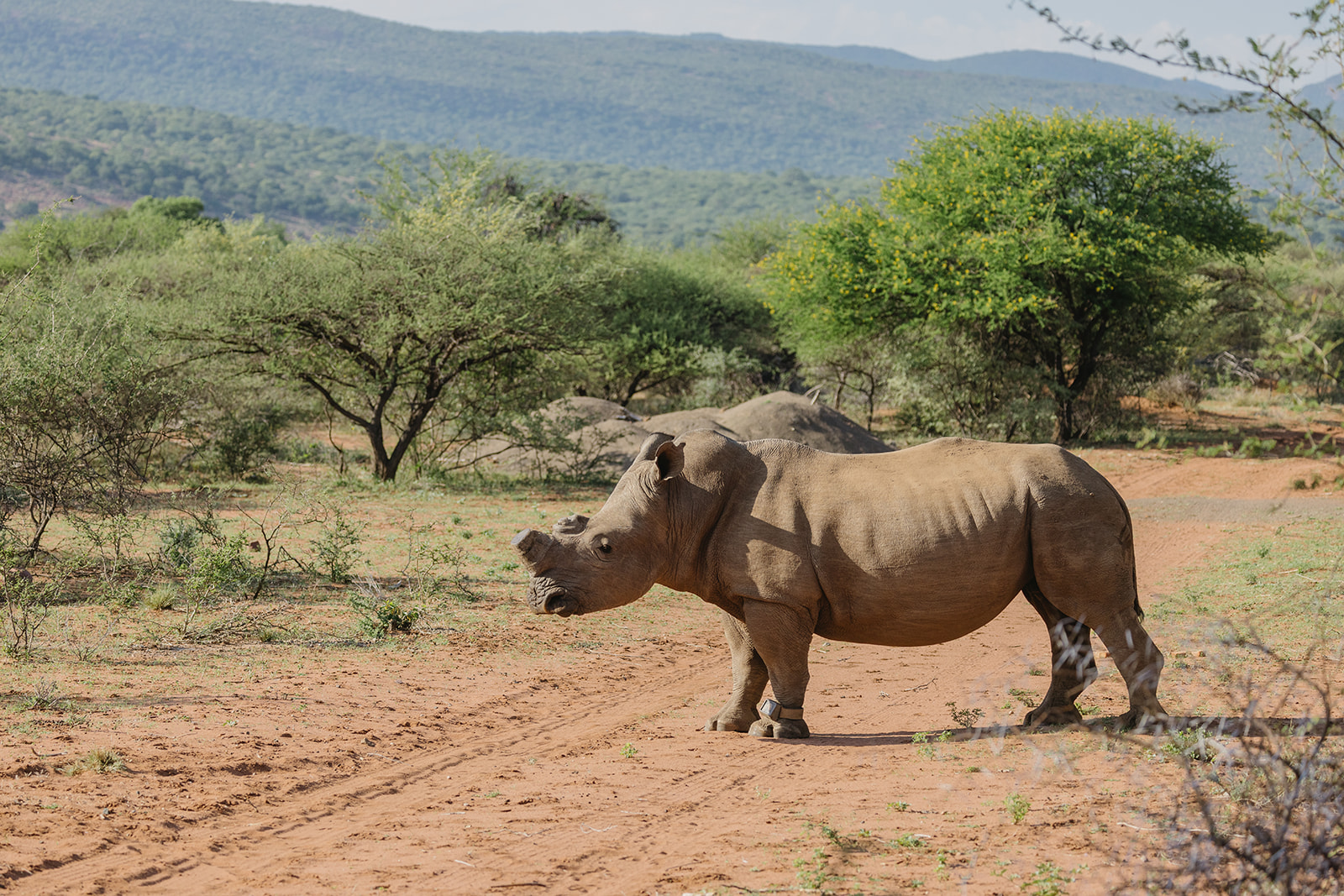A Community-Led Model for Scalable, Sustainable Rhino Conservation and Biodiversity Economies
Be the change. Practise ubuntu.
Ubuntu, the rhino, survived. He healed, grew strong, and eventually returned to the wild—where he still lives today. He now has his own territory, and in 2024, he was seen mating with a female rhino who had also survived poaching. His story gave us the courage to imagine something bigger: not just saving individuals, but saving systems. Not just healing rhinos, but healing relationships—between people, wildlife, and land.
Ubuntu: From Orphan to Opportunity — A New Era in Conservation
In 2015, a four-month-old rhino calf arrived at Rhino Revolution’s newly built orphanage. His mother had been killed by poachers. Alone, fragile, and traumatized, he represented the growing crisis of rhino conservation in South Africa—a world where the cost of protecting wildlife was rising, while the support to do so was fading.
We named him Ubuntu.
Not just a name, but a promise.
Ubuntu means “I am because you are.” It speaks of shared humanity, of community, of the deep connection between people and the world around them.



Launched in 2022 by Rhino Revolution, the Ubuntu Project takes its name and purpose from that calf’s story. It is a living, breathing model of what conservation can look like when it is rooted in justice, sustainability, and African values.
The goal is simple but revolutionary:
To create a community-led, regenerative economy where rhinos are not a financial burden but a sustainable asset—and where people living closest to wildlife are empowered as stewards of that heritage.
In 2023, the first step was taken. Five Southern white rhinos were purchased and relocated from a captive breeding operation to a community-owned property in Limpopo. Their horns were trimmed for safety, and full legal ownership was transferred to the community in October 2024. These rhinos are no longer simply protected—they are productive. Their horns grow back naturally, and under South Africa’s legal domestic trade framework, the community can harvest and sell the horn.
Rhino Revolution, in line with its mission to make live rhinos more valuable than dead ones, committed to purchasing the harvested horn at $5,000 per kilogram in 2025, 2027, and 2029—establishing a fair and secure income stream. Motivated by shared conservation values rather than recognition, a private investor has generously committed to covering essential operational costs such as security, labour, maintenance and supplementary feeding—ensuring the community’s efforts can focus fully on long-term conservation outcomes.
But the deeper commitment came from the community itself: to ensure that this income does not serve personal profit, but shared purpose.
The funds will be used to invest in the most urgent needs of the community, as determined by the executive committee of the Community Property Association. These may include education, infrastructure development, boreholes, facility renovations, employment creation, and building toward long-term wildlife economy activities such as tourism, game breeding, and conservation services.
This is not just a financial decision—it is an act of gratitude.
If a rhino gives its horn—not by choice, but for its own safety—then the least we can do is ensure that gift turns into something lasting.
A horn trimmed becomes a promise made. A future built. A story rewritten.
Because if we take from nature, we must give back to nature—not in words, but in real, measurable impact.
That is the heart of Ubuntu: to protect what protects us, and to honor what is given with something greater in return.
And looking ahead, should international trade in rhino horn from wild, protected rhino become legal—as currently under discussion after 2030—the community will retain 50% of the net profit from any future export sales of horns already harvested. This is not just a financial opportunity, but a long-term incentive for communities to remain committed to rhino protection. It offers a path to full independence, and in doing so, could one day render Rhino Revolution obsolete—our ultimate goal fulfilled. The project is designed to seamlessly transition into the envisioned international trade framework, ensuring long-term viability. In the meantime, we are working to bring as many suitable communities, their land, like minded funders and rhinos together—expanding rhino habitat and bringing more land under conservation stewardship. When communities have a tangible and equitable stake in conservation, it reinforces a powerful cycle of stewardship, accountability, and shared ownership of both the risks and the rewards.
The Ubuntu Project answers a question few dared to ask:
What if rhinos could fund their own protection and even more?
Unlike ivory or pangolin scales, rhino horn does not require killing the animal. It regrows—harmlessly and naturally—just like fingernails or sheep’s wool. For decades, conservationists have used horn trimming as a poaching deterrent. But the horn was simply stored. Under Ubuntu, it becomes a source of revenue—not from death, but from life.
This is what sets Ubuntu apart.
It is not dependent on unstable donations.
It does not divide people into “protectors” and “poachers.”
It unites them in a common purpose: a sustainable biodiversity economy where land restoration, wildlife protection, and rural livelihoods are not in conflict, but in harmony.
And it’s scalable. The original 2013 vision by South Africa’s Department of Environmental Affairs imagined a future where 120 communities could collectively own nearly 30,000 rhinos by 2037. The policy was never implemented—until now.
Ubuntu is turning that vision into action. The five rhinos have settled in well, and the community is excited to make this project a long-term success. They hope to inspire other like-minded communities and demonstrate that it is possible to bring more rhinos and more people together—bringing land into conservation and expanding rhino habitat across South Africa.
For decades, conservation messaging has focused on demand-side blame: trying to change cultural beliefs in distant consumer countries or pressuring foreign governments. But deeply rooted traditions don’t change overnight—and rarely through guilt or confrontation.
Think of yourself. If someone from another country tried to shame you into changing your beliefs, would it work?
Ubuntu takes a different path.
It doesn’t wait for global attitudes to change or rely on emotional outrage to raise funds.
It focuses on what can be done, HERE and NOW, with the tools and communities already in place.
This is not armchair conservation.
It’s not about collecting money with dramatic images and unrealistic promises.
Ubuntu is boots-on-the-ground work, rooted in action and accountability.
It removes the incentive for poaching at the source—by turning the rhino into an asset for the very people who live alongside it.
It’s not a protest. It’s a prototype.
A model for what conservation can become when it’s driven by shared interest, not just sympathy.
Aligned with National and Global Priorities
Ubuntu is firmly aligned with national and international policy. It supports South Africa’s White
Paper on Biodiversity (2023) and the Biodiversity Management Plan for Rhinos (2024). Globally, it advances the Kunming-Montreal Global Biodiversity Framework and multiple Sustainable Development Goals—from poverty reduction and education to climate action,
equity, and global partnerships.
At its heart, the Ubuntu Project is about legacy. It’s about proving that conservation does not belong only to governments, NGOs, or donors. It belongs to the people. It belongs to the land.
It’s about restoring dignity to communities who were excluded from the wildlife economy for too long. It’s about changing the story—from one of helplessness and conflict to one of ownership, resilience, and renewal.
It’s also about Ubuntu—the orphaned calf—whose life inspired it all.
His horn was first trimmed in November 2017, when he was just two years old and released back into the wild. Since then, it has been trimmed every two years—for his own protection.
He never had a horn. He never had a choice.
And yet, his life became the spark of something greater.
Now, with the protection of a secure landscape and a growing community of guardians, we owe him more than survival.
We owe him a future where he will one day live free, with his horn and dignity intact.
That, too, is Ubuntu: the belief that healing is possible—not just for the orphan, but for the system that failed him.
One day, when poaching no longer threatens his kind, his horn will be allowed to grow again. And with it, the full circle of his story—from victim to symbol to legacy—will be complete.
That will be the ultimate success.
The orphan who sparked a revolution.
The story that turned grief into a movement.
And the promise that conservation, when done right, can give back more than it takes.
Let’s build a future where rhinos no longer need saving—because the system itself keeps them safe.
Meanwhile join us in proving that rhino conservation can be equitable, scalable, and economically
sustainable. Let rhinos become the driving force of Africa’s biodiversity economy—not its casual-
ties. This is Rhino Revolution. Their revolution. A revolution not fought with guns, but with hope,
collaboration, and courage. A quiet uprising that begins in the community and ends in the wild.
Be the change. Practise Ubuntu.
Share this story
